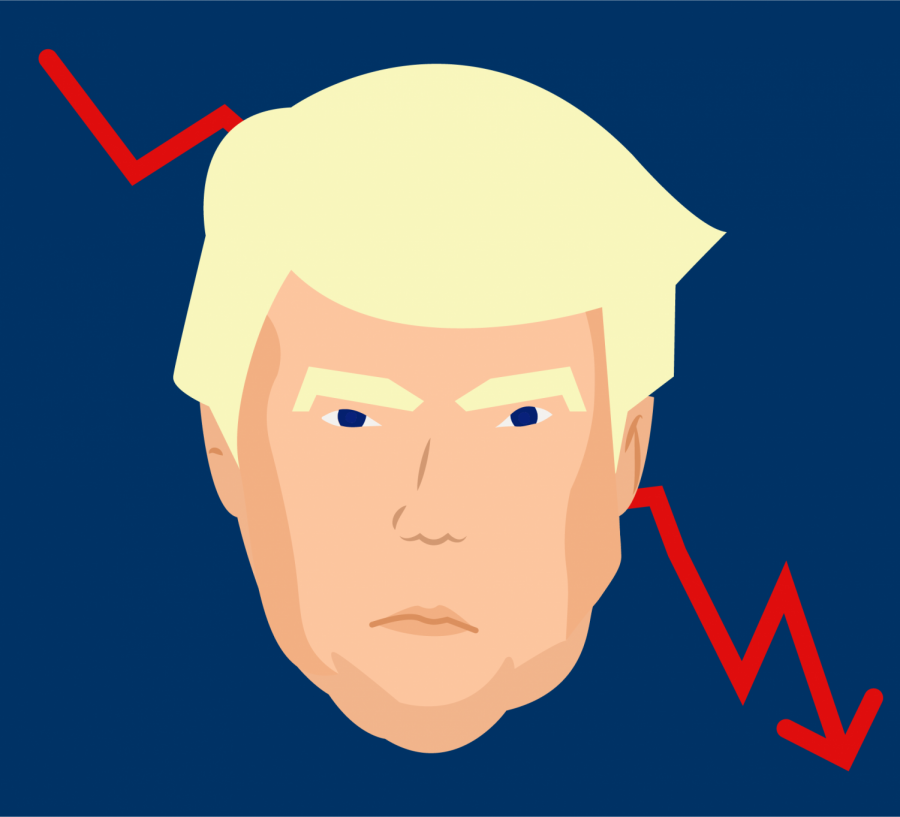Trump drives China to brink of economic crisis
Jan 28, 2019
It has been two years since Donald Trump first took office in January 2017, and the world is a much different place. Since taking his oath to put “America First,” the global economy has seen just how far the president is willing to take that statement.
With every impactful tariff levied, costly tax cut administered and snarky tweet sent, the president has made it clear he is trying to push the country forward, albeit through nontraditional methods. To the chagrin of some and the satisfaction of others, President Trump has done most everything he said he would do. However, as there are indications of a global economic slowdown within the final two years of his term, it is time for the president to dial back his brinkmanship tactics to preserve a successful presidency.
Since taking office, the president has been aggressive with his policies to say the least but has undoubtedly produced results. His tough rhetoric led to a historic summit with North Korean leader Kim Jong-Un. The economic growth policies enacted by his administration have caused unemployment rates among all ethnicities to maintain consistently low figures. The hefty tax cuts have boosted consumer spending to reignite an elderly bull-market and economic boom.
However, his decisions, which have heavily impacted trade for the world’s two biggest economies, are starting to worry the globe’s population. The rollercoaster of trade news has added volatility to an already shaky stock market. Tariffs levied on Chinese goods have resulted in a bruising trade conflict that has caused varying levels of economic struggles for both the United States and China.
From the beginning, Trump’s decision to create a global problem by simply poking China and asking for a “better deal” was not one a logical president would have made. He effectively created a problem out of thin air only to fix it and take the credit. Despite his stubborn negotiations with Chinese President Xi Jinping and his officials, President Trump has only produced a three-month trade war ceasefire that will conclude March 1 if no deal is signed.
Get The Daily Illini in your inbox!
The problem of his own making has gone far further than I assume even he expected, as a Chinese economic report published Monday detailed an injured economy with its worst growth rate since 1990. Although the Chinese economy has been slowing for some time now, the impact of tough tariffs from Tariff Man himself have exacerbated problems that put a global debt behemoth on the brink.
The bruises haven’t stopped in just the eastern hemisphere either. The United States stock market has seen tumultuous rises and falls throughout this trade saga. Strong companies such as Apple are beginning to suggest worries about slowing revenue growth brought on by a cyclical economy, coupled with the added pressure from Trump’s trade conflict. As large, publicly traded companies begin to report their own worries about a nearby downturn, for Trump to truly put America first he must calm the economic storm by avoiding his abnormal desire to create conflict.
A reasonable amount of selfishness is beneficial for everyone — it is part of what makes capitalism so successful — but Donald Trump’s current selfishness will come back to haunt him if he can’t solve his own problem. If the trade conflict catalyzes a global recession that ramps up right when he needs votes, the same people who trusted his ability to lead a strong economy in 2016 will change sides.
It is time for the president to heed the warnings from around the globe: peaks in the economic cycle are always followed by a recession. Even as he tries to put America first, avoiding the inevitable will cause far more pain (shoutout to the 2008 global banking system).
As the nation’s longest government shutdown ended on Friday, China’s debt-ridden economy falters and the global stock market wavers, the effects of President Trump’s actions are at the forefront. If the president is unable to humble himself by March for the sake of a deal, the entire world economy will be at risk.
Fred is a freshman in Media.






